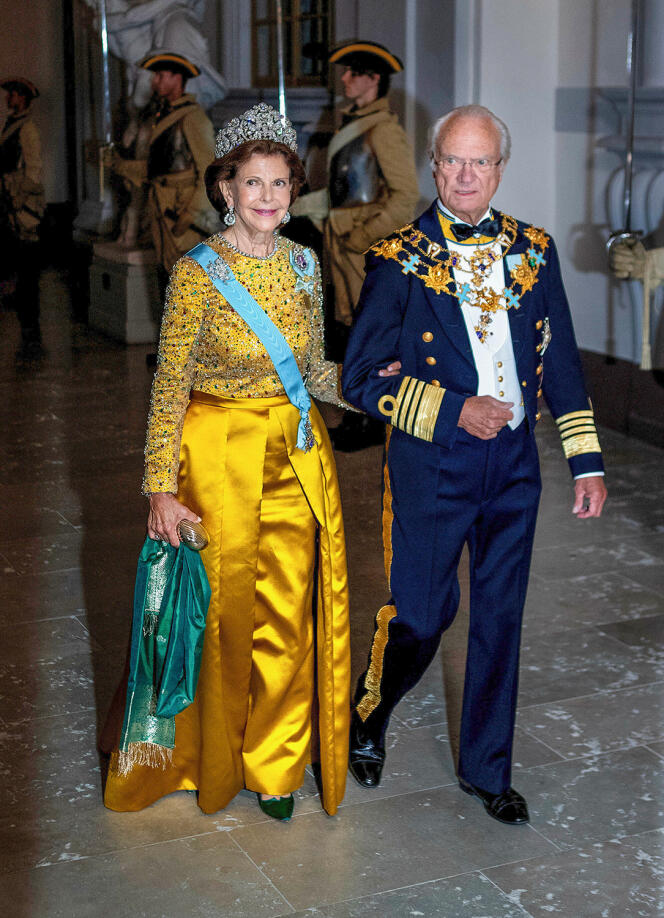


Royal poisoning at the Elysée Palace: On December 2, 2014, it was a very close call. Heir to Jean-Baptiste-Jules Bernadotte, Marshal of the Empire who became King of Sweden and Norway in 1818, Carl XVI Gustaf was in Paris for a state visit with his wife, Queen Silvia. As befitted such an occasion, then president François Hollande hosted a banquet at the Elysée in the couple's honor.
All the pomp and circumstance of France is famous for was on display. But the next day, the Queen was confined to bed, "indisposed," as her husband diplomatically explained. The culprit was quickly identified: a not very fresh Breton lobster.
Did the king hold a grudge? Nine years later, as the royal court announced that President Emmanuel Macron and his companion would be visiting Sweden in October – a visit since postponed to January 30 and 31 in the wake of the Brussels attack – Carl XVI Gustaf recalled this crime of lèse-majesté, in a funny interview with the business daily Dagens Industri. "Everyone got sick," he said, mocking the Elysée kitchens, which "had probably prepared [the lobster] in the afternoon and served it for dinner." Faced with such a calamity, the Macrons' state visit, the first since the Chirac family's visit in 2000, can only be a success: "I'm not worried. It's going to go well," Carl XVI Gustaf told the newspaper.
The 77-year-old monarch has seen it all. He has just celebrated his golden jubilee, a record longevity for a monarch in the history of the Scandinavian kingdom. His reign has had its ups and downs. But overall it's all positive: Every poll shows that a majority of Swedes want to keep the monarchy, and although the abolition of the monarchy is still on the Social Democrats' agenda, no political party dares to call for it.
Fifty years ago, the situation was quite different. When his grandfather, King Gustav VI Adolphe, breathed his last on September 15, 1973, many doubted the young prince's abilities. His father, Crown Prince Gustav Adolphe, had died in a plane crash when he was 10 months old. His mother, Princess Sybilla, daughter of Duke Charles-Edouard of Saxe-Coburg and Gotha, a close associate of Adolf Hitler, had fallen into depression. He was said to be intellectually limited – as a child, his dyslexia was considered mental retardation – and more interested in parties and girls than in affairs of state.
Even before he took the throne, the Social Democrats reached an agreement with the Conservatives, Centrists and Liberals in June 1971. The Torekov Compromise, named after the seaside resort where it was signed, deprived the king of all his powers. While he remains head of state, he has only a ceremonial role: He no longer appoints the prime minister, he no longer signs legislation and he is no longer head of the armed forces. "He has formally become the king with the least power in the world," said Mikael Holmqvist, professor of economics and sociology at Stockholm University, author of The King, Leader of Sweden.
You have 45% of this article left to read. The rest is for subscribers only.
